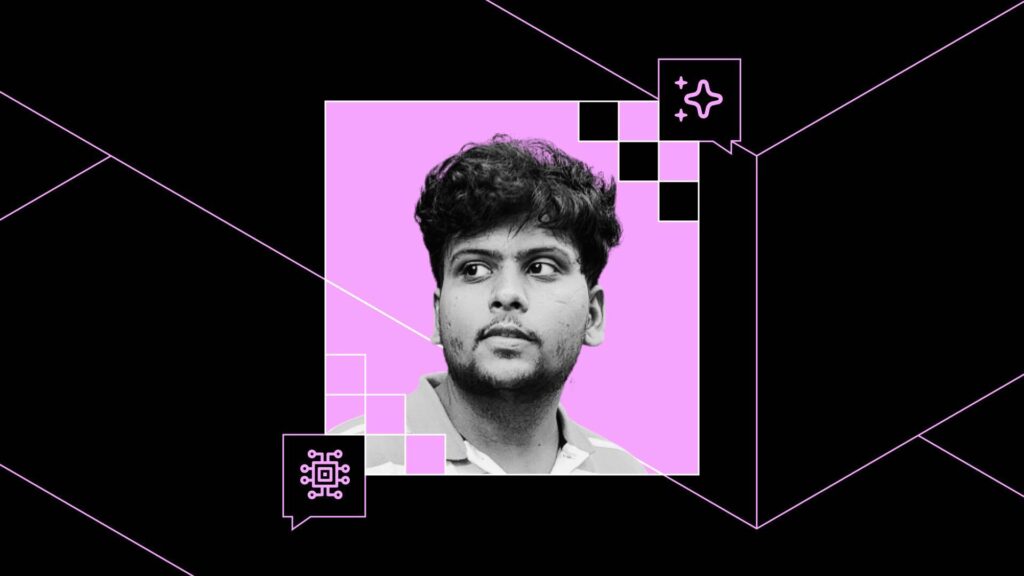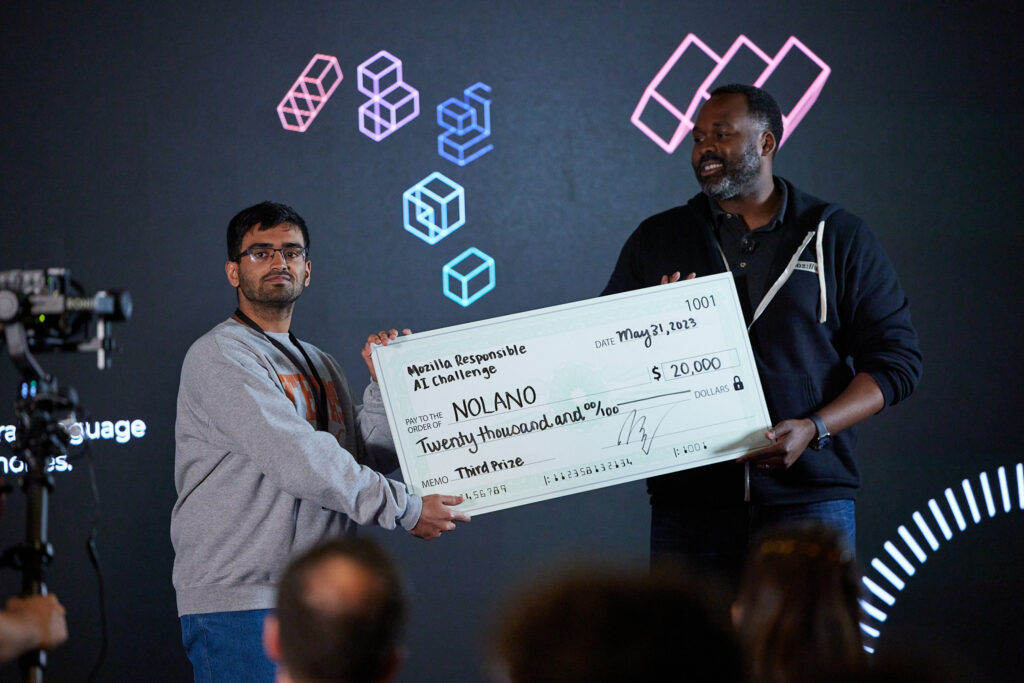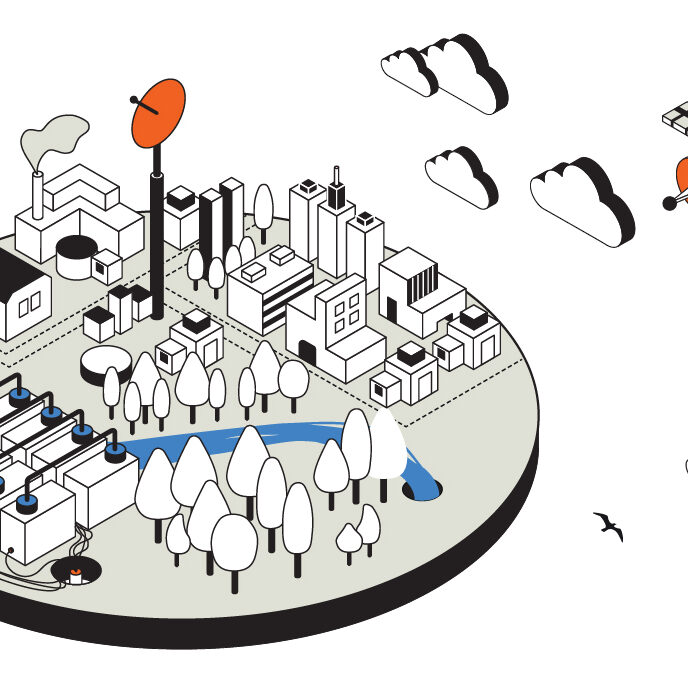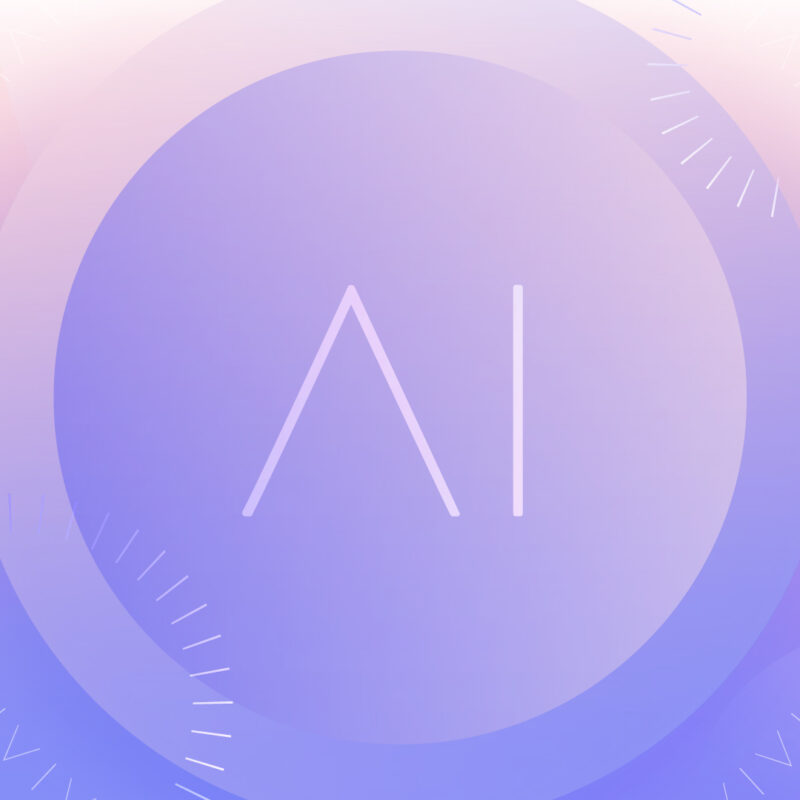How to make trustworthy AI? Lower the barriers for developers

Nolano, one of the winning startups at Mozilla’s Responsible AI Challenge, wants to make it easier to create AI apps.
Founders Tejas Vaidhya and Ayush Kaushal realize the power of large language models. They also know that using them to develop apps typically requires tools beyond the capabilities of a laptop or a smartphone. Tejas and Ayush are part of a growing community working to not only democratize the development of LLM-based tools, but to encourage collaboration and allow more user control of data. We spoke to Tejas about his work, how he and Ayush got started on Nolano, and his vision for the future of AI.
From architecture to AI
The internet was Tejas’ gateway to knowledge while growing up in a small town in India. He studied architecture as an undergraduate, but after writing a program for a design project, a friend asked him to join a computer science competition. “We failed terribly,” Tejas said. “But that was very fortunate because I found that there’s a lot of things to learn.”
He moved to Canada and is now a graduate student at MILA – Quebec AI Institute. He’s active in the open source community, where he met Ayush.
“AI excites me because it’s like the closest thing to magic.”
Tejas Vaidhya
Starting Nolano
Tejas and Ayush, who was studying computer science at the University of Texas in Austin, collaborated on a number of projects before starting Nolano, short for “No Language Obstacles.” As Tejas explained, Nolano’s aim is to leverage large language models to enable the creation of AI apps on mobile devices. Their compression techniques and software allow developers to run language models locally.
“If you’re running this locally, you get privacy and customization while saving a lot of CO2 release because you’re not using all the CPU in the data centers,” Tejas said. “We are very developer-focused.”
The magic of AI
“AI excites me because it’s like the closest thing to magic,” Tejas said. “I used to think the same thing about architecture because whenever I used to visit some places, I go inside and I just feel like I’m in a different world. That’s exactly how I felt when I began studying computer science, but the results are just beyond your imagination.”
Specializing in natural language processing (NLP), Tejas finds the mix of determinism and ambiguity within language fascinating: “Even though it has this logical structure of grammar, at the same time it’s an art.”
Nolano’s potential
The chatbot landscape has been changed by models like ChatGPT. Tejas said developers can use Nolano to create interactive and personalized chatbots and autocomplete code tools. The underlying philosophy of Nolano is to reduce the computational resources required to run large language models, making them more accessible to developers, Tejas said.
He envisions Nolano continuing its research and development in compression techniques to further reduce the size and computational requirements of language models. But his ambitions extend beyond compression. Tejas recognizes the need for post-deployment tooling, focusing on areas such as model management, monitoring and ensuring the reliability and safety of deployed models. With an emphasis on continuous improvement, Nolano aims to gather feedback from users to enhance the functionality and security of their models.

The future of AI
Despite the uncertainties AI poses, Tejas is optimistic about its future. As long as we center humans, like Nolato does with developers for example, he said that AI can be a catalyst for progress to address issues like climate change.
“There are definitely problems,” Tejas said. “We should make sure that we deploy AI responsibly. It can be used for fake news or propaganda, for example. But I think we also had problems with the printing press. And we figured out solutions for that.”


